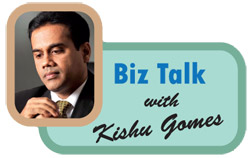 Making an impressive start Making an impressive start
First impressions about people often turn into long-term perceptions
and reputation - which are good for people who make positive first
impressions, the halo effect, but bad for people who make negative first
impressions. I think the early days are when your boss and colleagues
form the most lasting impressions about you.
This is when they make assessments about your 'typical' behaviour -
the 'type' of person you are. If you have any punctuality or any other
visible behavioural issue in the first few days or weeks, you've already
lost a significant battle.
They may lose confidence in you. People will take you as seriously as
you take yourself and your work. I don't mean to say try and be perfect.
Most employers realise that there is a learning curve for most
positions. So, there is often an unofficial grace period while you
settle into your job.
New employer
In theory, you should have already done your homework during the
interviewing process, but there is always more to learn when you are
within. Don't think and act as if you know more about everything than
your peers who have been there for long.
Attitude
You should never underestimate the importance of dressing
professionally in your new job. Dress how you want people to perceive
you because it plays a huge role in how you are initially treated. Your
looks and dress are your representation to them.
Nothing works better - in all situations - than having and expressing
a positive attitude. Let your enthusiasm for being a part of the team
and the organisation be seen by everyone you interact with.
You are now part of a team, and teams work together to solve problems
and get the job done. Show loyalty to your co-workers and focus more -
initially at least - on sharing any recognition you get with the team.
Always give credit to the team.
Ask questions
No one expects you to solve all the organisation's problems on your
first few days on the job - nor that you know everything - so, relax a
bit, and always ask questions or ask for help when you need it.
Remember that it is better to ask before you've completed the task
the wrong way and wasted time.
Unless you have a photographic memory - and only a few of us do
anyway - take notes on all the various systems, processes and rules of
the organisation.
And no matter how boring they may sound, attend all orientation
sessions. Nothing gets old faster than someone repeatedly asking how
something works. Such behaviour shows a lack of attention to detail.
Listen, don't act like a know-it-all right off the bat. When we are new
to the organisation, it is better to listen than talk.
Feedback
Getting a feedback on the initial work done will allow you to get the
alignment needed. It may be the same activity you have done for the
previous employer but the way of doing it may be different for specific
reasons. Hence it's important that you get feedback from co-workers and
leaders.
A solid start is critical to build a solid career. Allowing negative
perceptions to form and trying to change them halfway down the road is a
waste of time and effort even if it is possible to change. Doing it
'right the first time - the right way' is the best way forward. |

